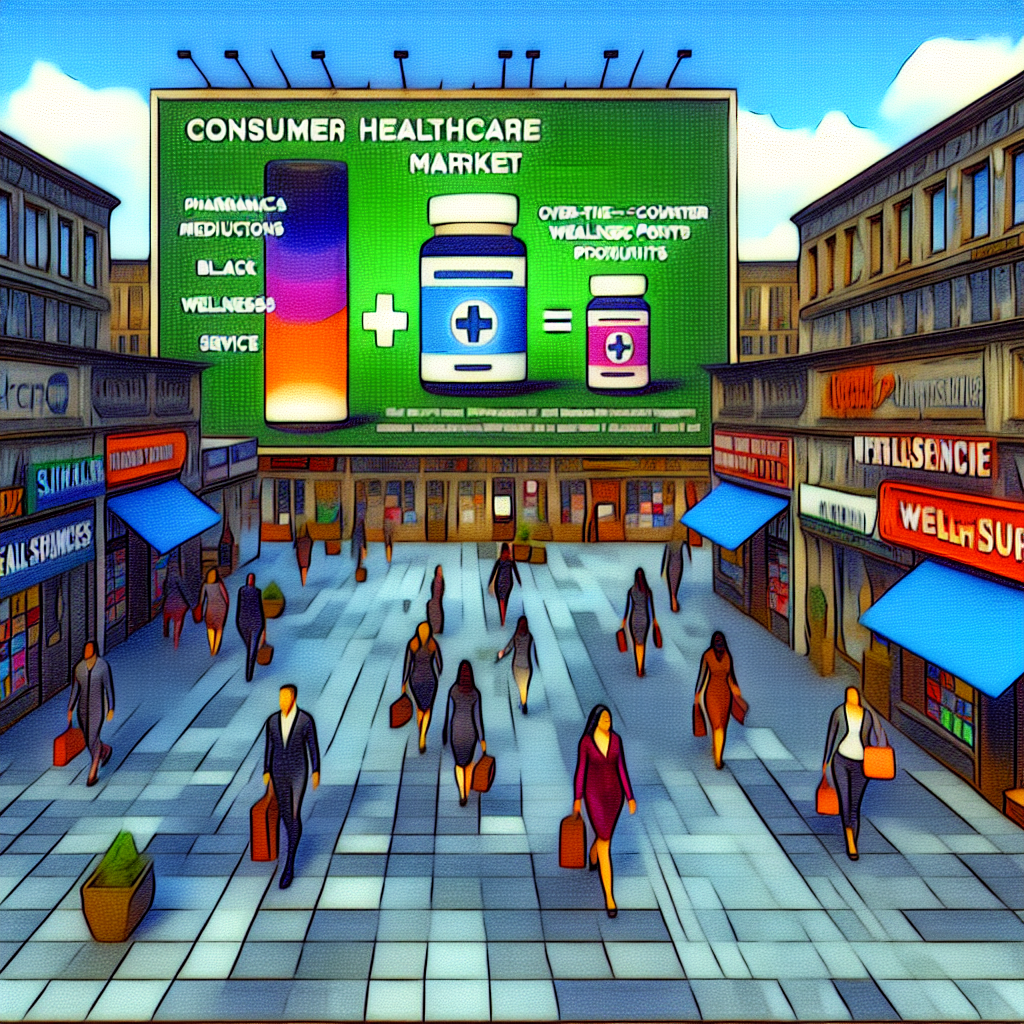Explore the growing consumer healthcare market trends, innovations, and forecasts for global wellness and medical product advancements.
Consumer Healthcare Market

Table of Contents
Exploring the Dynamics of the Consumer Healthcare Market

The consumer healthcare market is a dynamic and rapidly evolving sector, which encompasses a wide range of products and services aimed at empowering consumers to manage their health independently. This market segment includes over-the-counter (OTC) drugs, nutritional products, wellness supplements, and personal health technologies. In this article, we will delve into the various facets of the consumer healthcare market, examining its growth drivers, challenges, and future prospects.
Current Landscape of the Consumer Healthcare Market
The global consumer healthcare market has witnessed significant growth over the past decade. This growth is primarily driven by an increasing awareness of personal health and wellness, coupled with a rising preference for self-medication. According to a report by Grand View Research, the global OTC drug market alone is expected to reach USD 178 billion by 2024, growing at a compound annual growth rate (CAGR) of 7.5% from 2019 to 2024.
Key Drivers of Growth
Several factors contribute to the expansion of the consumer healthcare market:
- Ageing Population: Older adults typically have multiple health conditions that require management, increasing the demand for OTC products and dietary supplements.
- Healthcare Cost Containment: Rising healthcare costs are prompting consumers and governments to look for cost-effective alternatives to prescription medications.
- Technological Advancements: Innovations in technology have led to the development of advanced personal health products and mobile health applications.
- Increased Health Awareness: There is a growing trend towards preventive healthcare, which encourages the use of supplements and functional foods to maintain health and wellness.
Challenges Facing the Consumer Healthcare Market
Despite its robust growth, the consumer healthcare market faces several challenges:
- Regulatory Hurdles: The market is heavily regulated, and companies often face challenges related to the approval and classification of their products.
- Consumer Misinformation: There is a significant amount of misinformation regarding health products, which can lead to misuse and health risks.
- Intense Competition: The market is highly competitive, with numerous players ranging from pharmaceutical giants to niche wellness brands.
- Counterfeit Products: The availability of counterfeit products poses a risk to consumer safety and undermines trust in legitimate products.
Technological Innovations Shaping the Market
Technology plays a pivotal role in the transformation of the consumer healthcare market. The integration of digital tools and platforms not only enhances product accessibility but also improves consumer engagement and compliance. Some notable technological advancements include:
- Mobile Health Apps: Apps that track health metrics and provide personalized advice are becoming increasingly popular among health-conscious consumers.
- Wearable Devices: Devices like fitness trackers and smartwatches help users monitor their physical activity, heart rate, and other health indicators in real-time.
- Telemedicine: Telehealth platforms facilitate remote health consultations, making healthcare more accessible, especially in underserved areas.
- Online Pharmacies: E-commerce platforms for OTC drugs and health products offer convenience and competitive pricing, broadening consumer access.
Case Study: Success in Consumer Health Engagement
A notable example of successful consumer engagement in the healthcare market is the rise of personalized nutrition companies. These companies use data-driven approaches to tailor nutritional recommendations based on individual health needs and preferences. For instance, companies like “Nutrigenomix” offer genetic testing to identify nutritional needs based on DNA analysis, providing personalized dietary plans that are scientifically tailored to each customer’s genetic profile.
Future Outlook
The future of the consumer healthcare market looks promising, with several trends likely to shape its trajectory:
- Increased Focus on Preventive Healthcare: As consumers become more proactive about their health, there is a growing demand for products that support wellness and prevent disease.
- Expansion of Holistic Health Solutions: Consumers are increasingly seeking holistic approaches that encompass physical, mental, and emotional health.
- Greater Personalization: Advances in technology and data analytics will allow for more personalized healthcare products and services.
- Regulatory Evolution: Regulatory bodies may adapt more flexible frameworks to accommodate new technologies and business models in healthcare.
Conclusion
The consumer healthcare market is set to continue its growth trajectory, driven by technological innovations, an aging population, and a shift towards preventive and personalized health solutions. While challenges such as regulatory complexity and consumer misinformation persist, the opportunities for market players are significant. By leveraging technology and staying attuned to consumer needs, companies in the consumer healthcare space can not only enhance individual health outcomes but also contribute to the broader goal of sustainable healthcare systems.
In conclusion, the consumer healthcare market represents a vital component of the global health ecosystem, offering promising prospects for enhancing health outcomes and expanding access to care. As this market continues to evolve, it will undoubtedly play a crucial role in shaping the future of healthcare.








